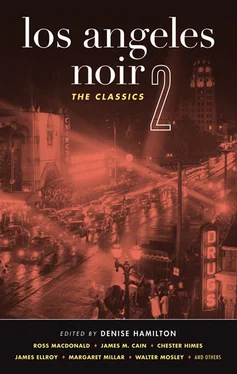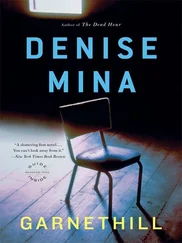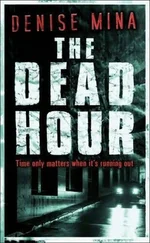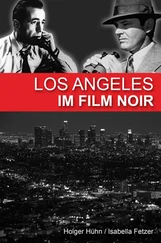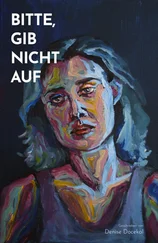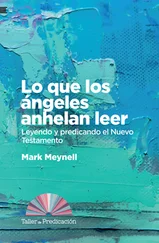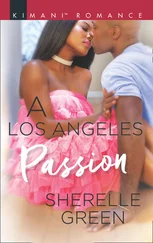Denise Hamilton - Los Angeles Noir 2
Здесь есть возможность читать онлайн «Denise Hamilton - Los Angeles Noir 2» весь текст электронной книги совершенно бесплатно (целиком полную версию без сокращений). В некоторых случаях можно слушать аудио, скачать через торрент в формате fb2 и присутствует краткое содержание. Год выпуска: 2010, Издательство: akashic books, Жанр: Старинная литература, на английском языке. Описание произведения, (предисловие) а так же отзывы посетителей доступны на портале библиотеки ЛибКат.
- Название:Los Angeles Noir 2
- Автор:
- Издательство:akashic books
- Жанр:
- Год:2010
- ISBN:нет данных
- Рейтинг книги:5 / 5. Голосов: 1
-
Избранное:Добавить в избранное
- Отзывы:
-
Ваша оценка:
- 100
- 1
- 2
- 3
- 4
- 5
Los Angeles Noir 2: краткое содержание, описание и аннотация
Предлагаем к чтению аннотацию, описание, краткое содержание или предисловие (зависит от того, что написал сам автор книги «Los Angeles Noir 2»). Если вы не нашли необходимую информацию о книге — напишите в комментариях, мы постараемся отыскать её.
Los Angeles Noir 2 — читать онлайн бесплатно полную книгу (весь текст) целиком
Ниже представлен текст книги, разбитый по страницам. Система сохранения места последней прочитанной страницы, позволяет с удобством читать онлайн бесплатно книгу «Los Angeles Noir 2», без необходимости каждый раз заново искать на чём Вы остановились. Поставьте закладку, и сможете в любой момент перейти на страницу, на которой закончили чтение.
Интервал:
Закладка:
Doolin tried to say something but the words stuck in his throat, and then Halloran was above him and there was a terribly crushing weight against Doolin’s forehead and it was suddenly dark.
Slowly, Doolin came to, lay a little while with his eyes closed. There were sharp twisting wires of pain in his head; he put his hand up, took it away wet, sticky.
He opened his eyes. It was entirely dark, a cold penetrating darkness; entirely still.
Suddenly he laughed, a curious hysterical sound in the quiet room; and as suddenly, panic seized him. He struggled to his knees, almost fell down again as the pain in his head throbbed to the swift movement. He got to his feet slowly, fumbled in his pockets and found a match, lighted it.
Martinelli’s body was slumped in the angle of floor and wall at one side of the room. There was no one else. Doolin’s revolver shone dimly on the floor in the flare of the match. The door was ajar.
Doolin lighted another match and picked up his revolver, his hat. He took out a handkerchief and wiped his face and the handkerchief was wet, dark. He walked, unsteadily, to the door, down the dark stairs.
One faint globe burned above the deserted bar. Doolin felt his way along the wall, lifted the heavy bar across the outside door and went out, closed the door behind him. It was raining lightly a thin cold drizzle.
He took air into his lungs in great gulps, soaked the handkerchief in a little puddle of rainwater and tried to clean his face. Then he went down the dark street swiftly towards Broadway.
The druggist looked at him through thick spectacles, gestured towards the back of the store.
Doolin said: “Fix me up some peroxide an’ bandages an’ stuff—I had an accident.” He went back to the telephone booth, found the number of the Fontenoy, called it, asked for Mrs. Sare.
The operator said Mrs. Sare didn’t answer.
Doolin hung up and went out and cleaned the blood from his face in front of a mirror. A little girl stared at him wide-eyed from the soda fountain; the druggist said: “Automobile …?”
Doolin nodded.
The druggist asked: “How much bandage do you want?”
Doolin said: “Let it go—it’s not as bad as I thought it was.”
He put his hat on the back of his head and went out and got into a cab, said: “Fontenoy Apartments—Hollywood. An’ make it snappy.”

Lola Sare’s voice said: “Yes,” with rising inflection.
Doolin opened the door, went in.
She was sitting in a long low chair beneath a crimson-shaded bridge lamp. It was the only light in the room. Her arms were bare, straight on the arms of the chair, her hands hanging limply downward. Her dark head was against the back of the chair and her face was taut, her eyes wide, vacant.
Doolin took off his hat, said: “Why the hell don’t you answer your phone?”
She did not speak, nor move.
“You’d better get out of here—quick.” Doolin went towards her. “Halloran killed Martinelli—an’ Martinelli opened up about you before he died. Halloran will be coming to see you….”
Her blank eyes moved slowly from his face to some place in the dusk behind him. He followed her gaze, turned slowly.
Halloran was standing against the wall near the door. The door had covered him when Doolin entered; he put out one hand and pushed it gently, it swung closed with a sharp click.
As Doolin’s eyes became used to the dimness of the room he saw Halloran clearly. He was leaning against the wall and the right shoulder and breast of his light gray suit was dark, sodden. He held the short blunt Luger in his left hand.
He said: “You’re a little late….”
The Luger roared.
Lola Sare put her hands up to the middle of her breast, low; her head came forward slowly. She started to get up and the Luger leaped in Halloran’s hand, roared again.
At the same instant Doolin shot, holding the revolver low. The two explosions were simultaneous, thundered in the dark and narrow room.
Halloran fell as a tree falls; slowly, stiffly, his arms stiff at his sides; crashed to the floor.
Doolin dropped the revolver, walked unsteadily towards Lola Sare. His knees buckled suddenly and he sank forward, down.
There was someone pounding at the door.

Doolin finished dabbing iodine on his head, washed his hands and went into the little living room of his apartment. A first dull streak of morning grayed the windows. He pulled down the shades and went into the kitchenette, lighted the gas under the percolator.
When the coffee was hot he poured a cup, dropped four lumps of sugar into it absently, carried it into the living room. He sat down on the davenport and put the coffee on an endtable, picked up the phone and dialed a number.
He said: “Hello, Grace? Is Mollie there? …” He listened a moment, went on: “Oh—I thought she might be there. Sorry I woke you up….” He hung up, sipped his steaming coffee.
After a few minutes he picked up the phone, dialed again, said: “Listen, Grace—please put Mollie on…. Aw nuts! I know she’s there—please make her talk to me….”
Then he smiled, waited a moment, said: Hello darling…. Listen—please come on home—will you? … Aw listen, Honey—I did what you said—everything’s all right…. Uh-huh…. Halloran’s dead—an’ Martinelli…. Uh-huh…. The Sare dame is shot up pretty bad, but not too much to give evidence an’ clean it all up…. Uh-huh….”
He reached over and picked up the cup and took a long drink of coffee, smiled into the phone, said: “Sure—I’m all right—I got a little scratch on my head but I’m all right…. Sure…. Sure—we were right…. All right, Honey—I’ll be waiting for you. Hurry up…. G’bye….”
He hung up, curved his mouth to a wide grin, finished his coffee, lit a cigarette and waited.
I FEEL BAD KILLING YOU
BY LEIGH BRACKETT
Santa Monica
(Originally published in 1944)
1
Dead End Town
L os Angeles, Apr. 21.—The death of Henry Channing, 24, policeman attached to the Surfside Division and brother of the once-prominent detective Paul Channing, central figure in the Padway gang-torture case, has been termed a suicide following investigation by local authorities. Young Channing’s battered body was found in the surf under Sunset Pier in the beach community three days ago. It was first thought that Channing might have fallen or been thrown from the end of the pier, where his cap was found, but there is no evidence of violence and a high guard rail precludes the accident theory. Sunset Pier was part of his regular beat.
Police Captain Max Gandara made the following statement: “We have reliable testimony that Channing had been nervous and despondent following a beating by pachucos two months ago.” He then cited the case of the brother, Paul Channing, who quit the force and vanished into obscurity following his mistreatment at the hands of the once-powerful Padway gang in 1934. “They were both good cops,” Gandara said, “but they lost their nerve.”
Paul Channing stood for a moment at the corner. The crossing-light, half a block along the highway, showed him only as a gaunt shadow among shadows. He looked down the short street in somber hesitation. Small tired houses crouched patiently under the wind. Somewhere a rusted screen door slammed with the protesting futility of a dying bird beating its wing. At the end of the deserted pavement was the gray pallor of sand and, beyond it, the sea.
Читать дальшеИнтервал:
Закладка:
Похожие книги на «Los Angeles Noir 2»
Представляем Вашему вниманию похожие книги на «Los Angeles Noir 2» списком для выбора. Мы отобрали схожую по названию и смыслу литературу в надежде предоставить читателям больше вариантов отыскать новые, интересные, ещё непрочитанные произведения.
Обсуждение, отзывы о книге «Los Angeles Noir 2» и просто собственные мнения читателей. Оставьте ваши комментарии, напишите, что Вы думаете о произведении, его смысле или главных героях. Укажите что конкретно понравилось, а что нет, и почему Вы так считаете.
